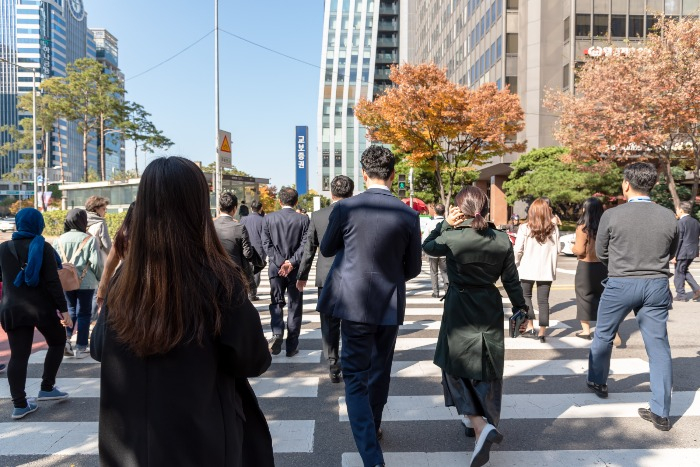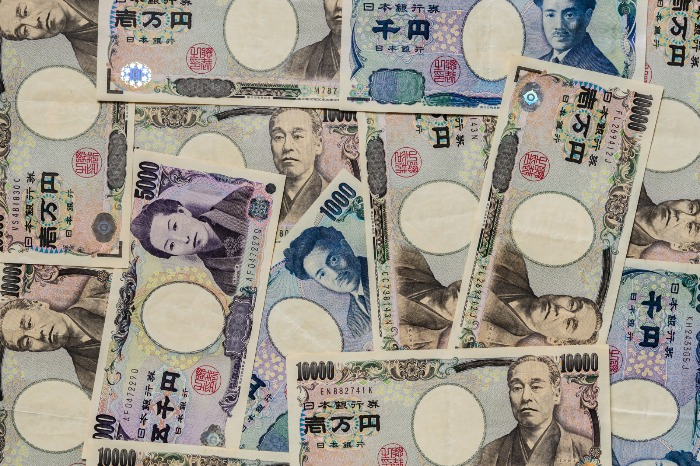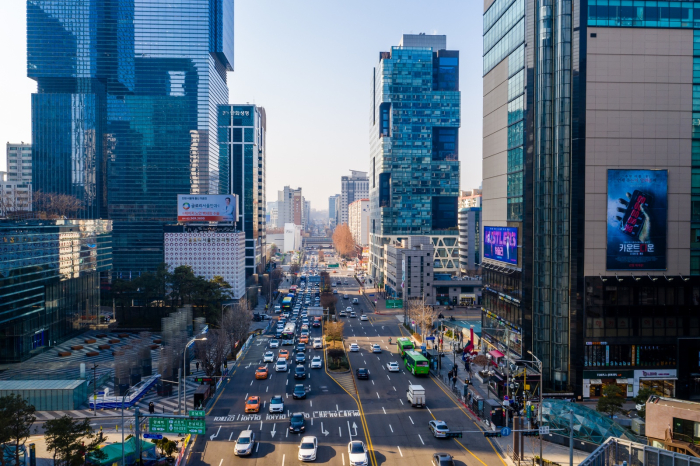Labor reform urged in Korea with higher wages than Japan
South Korea's rigid labor market and strict regulations are blamed for its low productivity
Mar 18, 2024 (Gmt+09:00)
LG Chem to sell water filter business to Glenwood PE for $692 million


KT&G eyes overseas M&A after rejecting activist fund's offer


Kyobo Life poised to buy Japan’s SBI Group-owned savings bank


StockX in merger talks with Naver’s online reseller Kream


Meritz backs half of ex-manager’s $210 mn hedge fund



Wages at South Korean companies, both large and small, have surpassed those of their Japanese counterparts.
According to a report on wage comparisons between South Korea and Japan published by the Korea Enterprises Federation, the monthly wages of Korean companies with 10 or more employees reached 3,998,000 won ($3,000) on average as of 2022, higher than Japanese firms’ 3,791,000 won.
Compared to 2002, South Korean employees’ salaries more than doubled from 1,798,000 won per month on average. That was less than half of Japan's 3,854,000 won the same year.
As of 2022, the average salary of full-time workers at large South Korean companies stood at 5,884,000 won per month, or 1.2 times that of Japan. Wages at small and medium-sized Korean enterprises were 3,399,000 won a month, 1.04 times more than Japanese counterparts.
A rise in wages is not bad if it moves in tandem with economic growth and inflation.
Wages in Japan have stagnated amid a protracted recession and deflation, primary causes of its so-called “lost 30 years,” which has played a large part in the wage reversal between Korea and Japan.

However, what is worrying is that South Korea's productivity is still lower than Japan's. Based on purchasing power, the country’s labor productivity was $49.4 per hour as of 2022, below the $53.2 of Japan, one of the developed countries with the lowest labor productivity.
Asia’s fourth-largest economy ranks 33rd out of 37 OECD member countries in terms of labor productivity.
Its productivity comes in at 76.3% of the Organization for Economic Co-operation and Development (OECD) average of $64.7 and only 56% that of Germany ($88.0) or the US ($87.6).
In particular, considering Korea's shrinking working population and unprecedentedly low birth rate, the world’s lowest, productivity growth is necessary to sustain its growth potential.

However, the rigid labor market hamstrings Korea's productivity improvement.
A clear example is that the proposal to modify the maximum 52-hour workweek cap, introduced in 2018, to flexible systems, say several hundred hours per quarter or thousands of hours per year, was blocked by labor unions and opposition parties.
The Heritage Foundation in the US ranked Korea’s labor market freedom 87th out of 184 countries in its 2024 Index of Economic Freedom report, which gauges the global impact of liberty and free markets.
The report underscores the urgency for Korea to implement labor reforms, including a drastic relaxing of regulations on large conglomerates.
For small- and medium-sized enterprises, current policies centered around protecting them from bigger competitors will only give rise to the Peter Pan Syndrome, or make it difficult for them to grow and enhance productivity. Policies should be directed to support their challenges, as well as their growth.
Yeonhee Kim edited this article.
-
 EconomyS.Korea’s fertility rate hits new world-record low in 2023
EconomyS.Korea’s fertility rate hits new world-record low in 2023Feb 28, 2024 (Gmt+09:00)
4 Min read -
 EconomyS.Korea’s labor gains slow in November with fewer jobs for young people
EconomyS.Korea’s labor gains slow in November with fewer jobs for young peopleDec 13, 2023 (Gmt+09:00)
3 Min read -
 EconomyShrinking youth jobs cast shadow over S.Korea’s labor market
EconomyShrinking youth jobs cast shadow over S.Korea’s labor marketJul 12, 2023 (Gmt+09:00)
2 Min read -
 Korean SMEsEmployment, labor regulations most burdensome for small businesses
Korean SMEsEmployment, labor regulations most burdensome for small businessesDec 05, 2022 (Gmt+09:00)
1 Min read -
 Labor unionHankook Tire sees increasing threat from combative labor union's demands
Labor unionHankook Tire sees increasing threat from combative labor union's demandsJun 22, 2022 (Gmt+09:00)
3 Min read -
 AutomobilesKumho Tire, labor union in tug of war over international plants
AutomobilesKumho Tire, labor union in tug of war over international plantsApr 08, 2022 (Gmt+09:00)
3 Min read


